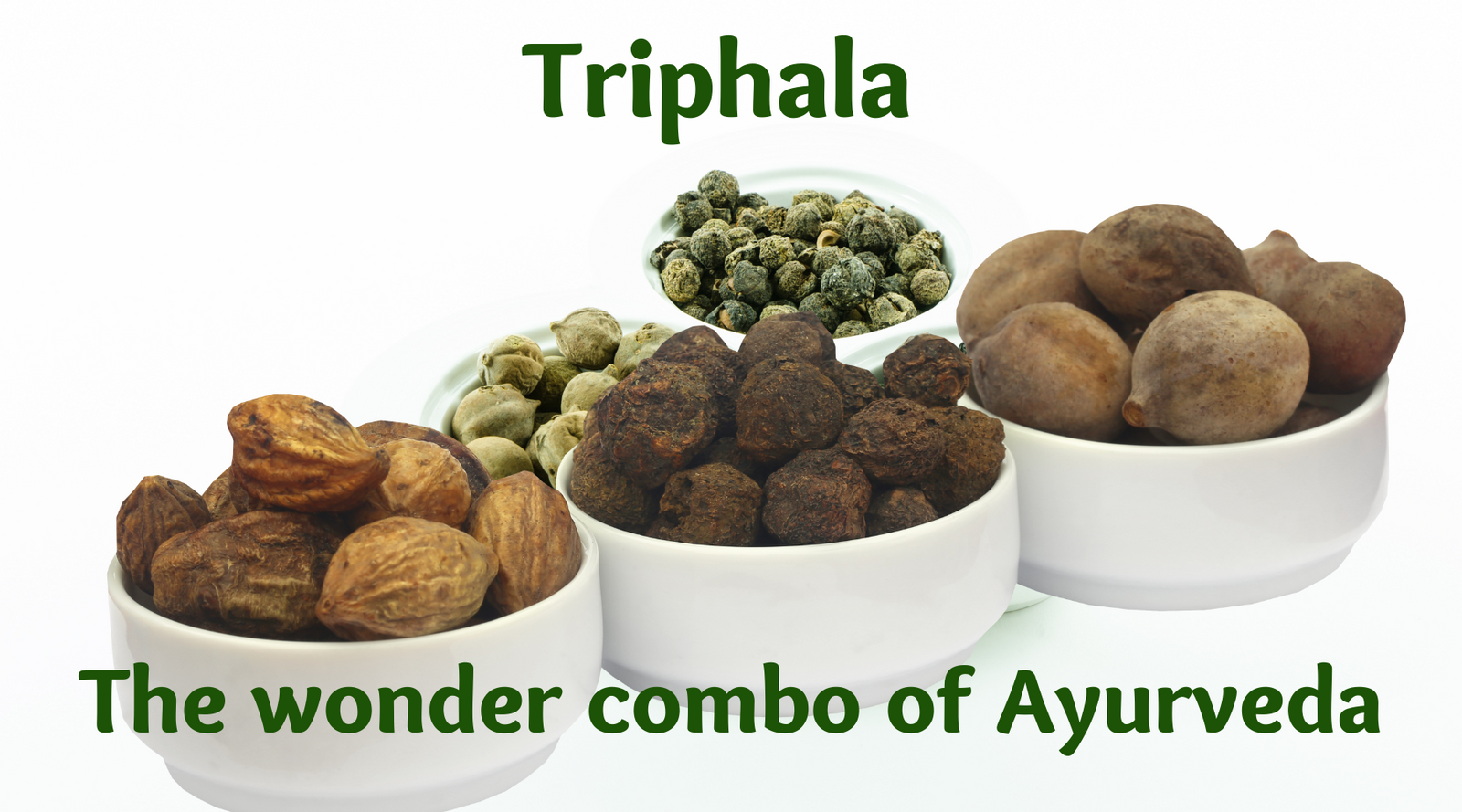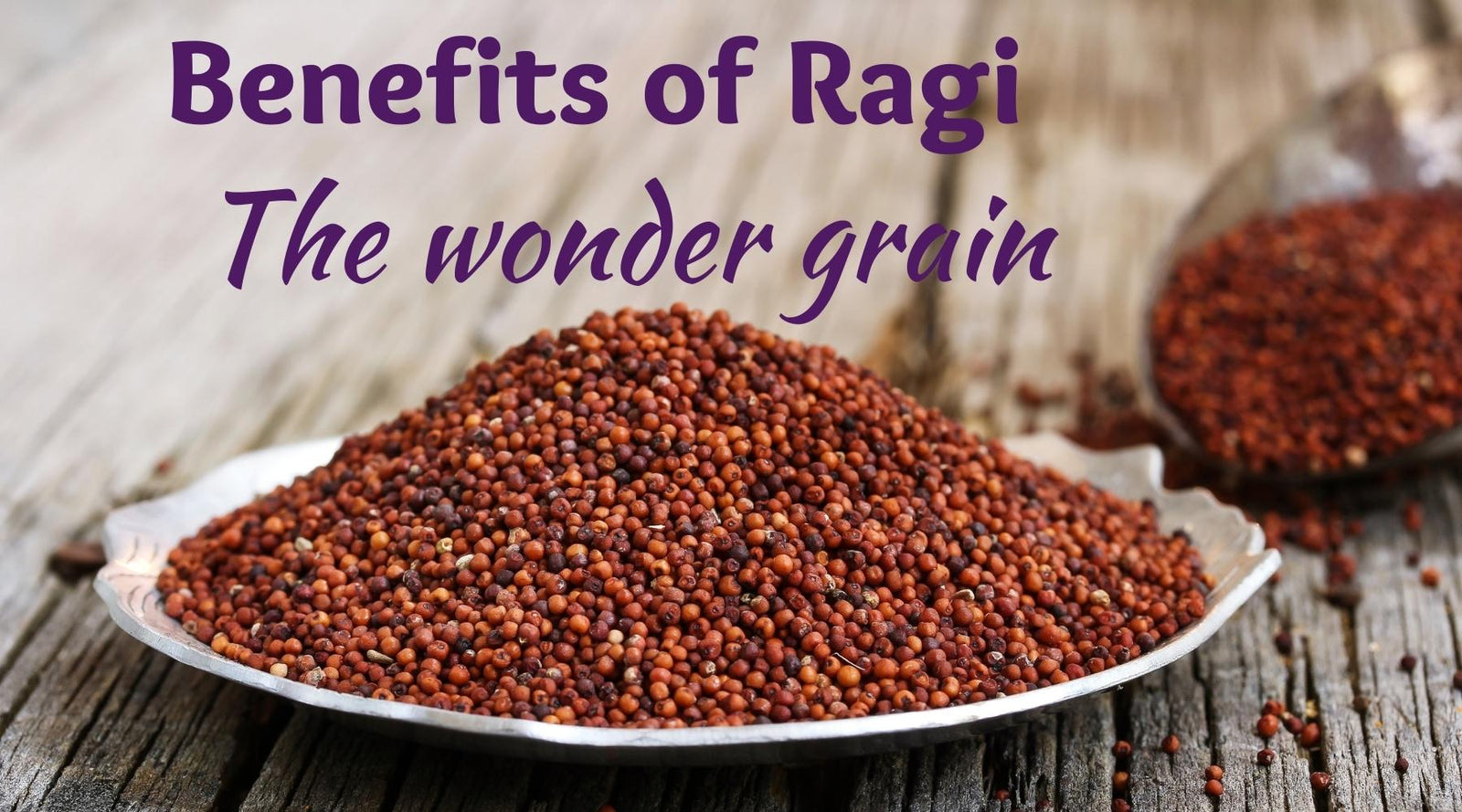
Triphala is derived from the Sanskrit words tri + phala, which imply three fruits. It is called after three dried fruits indigenous to India: Indian gooseberry (Emblica Officinalis), black myrobalan (Terminalia bellirica), and Haritaki (Terminalia chebula). It is available in the following forms: powder, juice, tincture, extract, pill, and tablet.
Triphala is a polyherbal medicine, which means it contains a variety of different therapeutic herbs. Polyherbal formulations are popular in Ayurvedic medicine since it is thought that mixing synergistic herbs leads in enhanced therapeutic effects and benefits.
Triphala's three fruits
Triphala is a blend of three dried fruits from three indigenous Indian plants:
Indian gooseberry, also known as amla, is high in antioxidants, vitamin C, and amino acids, as well as substances such as phenols, tannins, phyllembelic acid, rutin, curcuminoids, and emblicol. This fruit can aid in the elimination of toxins from the body, the regulation of pancreas health, the management of cholesterol levels, and the maintenance of strong bones.
Black myrobalan,AAlso known as bibhitaki or black myrobalan, black myrobalan helps manage cholesterol levels and maintains muscular and bone health and strength. It contains tannins, ellagic acid, gallic acid, lignans, and flavonoids.
Chebulic myrobalan, Haritaki is a nut-shaped fruit that is high in antioxidants and anti-inflammatory compounds. It is a phytochemical powerhouse, containing terpenes, polyphenols, anthocyanins, and flavonoids. This plant is frequently used in Ayurveda to treat digestive problems such as constipation.
What Is the Purpose of Triphala?
Triphala is classified as a tridoshic rasayana in Ayurvedic medicine. Triphala thereby benefits all three doshas: vata (air/space), Pitta( fire/water), and Kapha (water/earth). The doshas are the aspects that govern bodily, mental, and emotional well-being.
Triphala, according to Ayurvedic tradition, can be used to treat a wide variety of health issues. As is the case with many other multi-herbal treatments, it is uncertain which components of Triphala confer its putative advantages.
Numerous potential health benefits of Triphala can be linked to its laxative impact or capacity to "clear the system." Triphala acts as a bowel tonic in small dosages, relieving gas and promoting digestion. At higher doses, it can also be used as a purgative or severe laxative.
Along with its gastrointestinal advantages, Triphala is claimed to aid in the following:
• Reduce inflammation
• Maintain control of diabetes
• Encourage weight loss
• Cholesterol reduction
• Relieves stress and tension
• Treats bacterial and fungal illnesses
It may assist you in losing weight.
Triphala is an extremely effective detoxifier. It aids in the detoxification of the stomach, small intestine, and large intestine. Additionally, the combo functions as a colon toner, strengthening and toning the colon's tissues, which assist maintain your digestive system healthy. A healthy digestive system accelerates the digestion process, aids in constipation prevention, and aids in weight management.
It may help in the fight against cancer.
This Ayurvedic concoction has also been shown in a laboratory research to be efficient at inhibiting the growth of malignant cells. In a mouse test, the molecule found in it inhibited the growth of lymphoma, as well as stomach and pancreatic tumours. Triphala includes potent antioxidants such as gallic acid and polyphenols that are thought to aid in the fight against cancer.
It may have a calming effect on the body's inflammation.
Triphala contains a number of antioxidants that provide protection to the body. It is high in flavonoids, polyphenols, tannins, and saponins, which can aid in the battle against oxidative stress generated by free radicals and help avoid chronic diseases. Triphala has been demonstrated to reduce the risk of heart disease, some malignancies, diabetes, rheumatoid arthritis, and premature ageing when consumed regularly.
It may offer protection against dental disorders.
Triphala possesses antibacterial and anti-inflammatory qualities that may help safeguard you against a variety of tooth ailments. It may help prevent the growth of plaque, cavities, and gingivitis. Clinical research indicates that washing your mouth with Triphala mouthwash can help prevent plaque and fungal infection. Additionally, its antioxidant capabilities can aid in the healing of mouth sores.
It may help to improve the quality of the skin.
Apart from taking it internally, some people apply Triphala tropical topically to their skin. It is claimed that the anti-inflammatory and antioxidant qualities of this plant may aid in the healing of certain skin conditions and the protection of skin cells. According to a study, applying Triphala paste to the skin can aid in the rebuilding of skin protein, the retention of moisture in the skin, the synthesis of collagen, and the speedy recovery from wounds.
It may help alleviate stress and anxiety.
Combining the three herbal fruits may also be beneficial for your mental wellness. Numerous studies demonstrate that consuming Triphala can help your body manage with stress. Another study discovered that the mixture can assist in reversing some of the behavioural difficulties associated with stress.
It is a natural laxative
Triphala has been used to heal gastrointestinal problems in Ayurveda since thousands of years. It functions as a natural laxative, alleviating constipation, abdominal pain, and flatulence, as well as increasing the regularity and consistency of bowel movements.
Methods to incorporate Triphala into your diet
Triphala comes in a variety of forms. Depending on your preference, you can purchase capsules, powder, or liquid. To ensure optimal absorption, it is recommended to take this herbal remedy between meals on an empty stomach. Doses of 500 mg to 1 gramme per day are advised. You can consume this herb in four distinct ways.
• Add 1 tablespoon of Triphala powder to a glass of cold water and leave overnight. Consume the combination first thing in the morning.
• Triphala powder combined with honey and cinnamon: Infuse a teaspoon of Triphala powder in a glass of water overnight. Add a tablespoon of honey and half a teaspoon honey to this concoction in the morning and drink.
• Take one triphala tablet with warm water before bedtime.
• Triphala tea can also be made with Triphala powder. To make the tea, whisk together a tablespoon of Triphala powder and a cup of boiling water. Allow 10 minutes for the mixture to steep before drinking your hot beverages.
Triphala's adverse effects
Triphala is a herbal remedy that is generally safe to consume and has few adverse effects. However, some individuals may develop a response after taking it.
Excessive Triphala consumption can result in diarrhoea and stomach pain. Even pregnant and nursing women should exercise caution when ingesting this herbal remedy. They should first visit their physicians to avoid complications. Avoid this mixture if you are taking blood-thinning medication, as Indian gooseberry, one of the primary components of Triphala, may increase the risk of bleeding and bruising.












Leave a comment (all fields required)